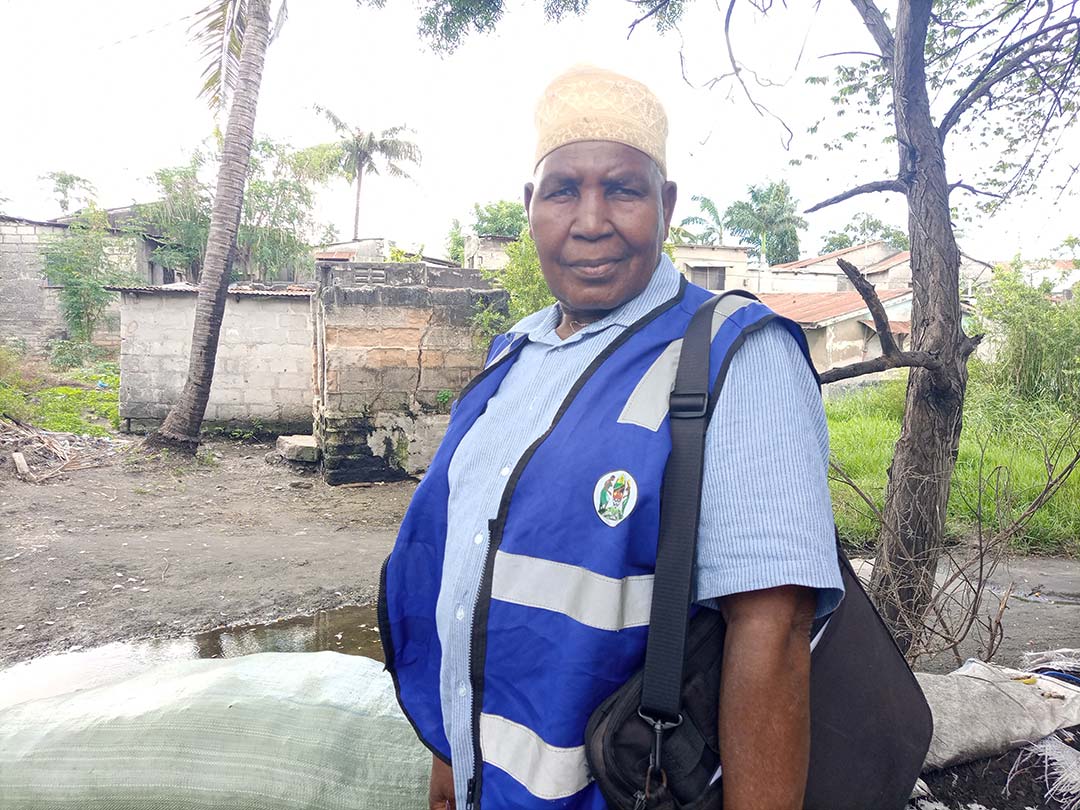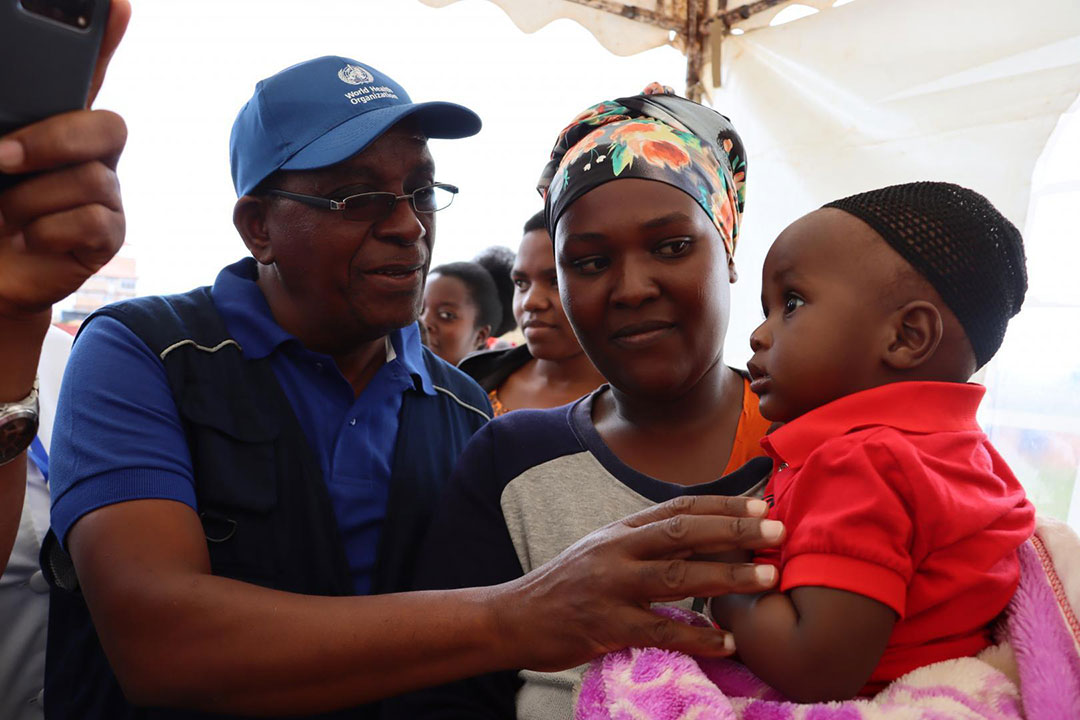Embracing the science of vaccines: Tanzania’s changing COVID-19 response
Amid a broad-based effort to sort vaccine fact from vaccine fiction, health workers and community leaders in Tanzania are noticing a change in attitudes among young and old.
- 1 June 2022
- 4 min read
- by Syriacus Buguzi

About ten months ago, when COVID-19 vaccines first became available in Tanzania, Hamida Bakari found herself in a state of anxious confusion. The 71-year-old resident of Kijitonyama suburb in the commercial capital Dar es Salaam was afraid of the jab, she says – despite knowing that infection with the new coronavirus could cost her her life.
“Most young people didn’t take vaccination seriously because they believed they were not at risk, but through engaging them to understand the broader aim of the national vaccination plans, I have seen many of them deciding to be vaccinated.”
She wasn’t alone. For months, Tanzania had held off on joining the world’s largest-ever vaccine rollout, even as activists lobbied for a shift in national policy to curb the pandemic virus’s spread. Then, in late July 2021, the country’s new president, Samia Suluhu Hassan, appeared on the nation’s TV screens, declared the vaccine safe, and rolled up a sleeve to receive her own jab, launching the countrywide COVID-19 vaccine campaign. Health Minister Dorothy Gwajima spoke too, asking religious and political leaders to step up for their shot – to set an example, and to “encourage and educate” others to do so too.
But ambivalent messaging from on high had already left space for rumours and falsehoods about the vaccine to circulate in Tanzania’s cities and towns. The upshot of that widespread misinformation, according to Dr Aifello Sichalwe, Tanzania’s Chief Medical Officer, was “decreased COVID-19 risk perception among the general population, making people not visit health facilities for getting jabs.”
Bakari recalls, “On the one hand, I was warned by health workers that, because of my old age, I was at risk of dying from COVID-19 and that vaccines could save my life. On the other, the people I trust in my neighbourhood were saying the vaccines are unsafe.”
But a period of intense information campaigns supported by local and international NGOs in collaboration with the government has begun to bear fruit. Influential people in communities, such as religious figures and community health workers, have been instrumental in raising awareness and correcting misperceptions.

Credit: Syriacus Buguzi
Have you read?
“A community health worker who lives in our neighbourhood came to my house repeatedly to educate me about the benefits of the COVID-19 vaccine. I then decided that it was time to get vaccinated. I also convinced my relatives to do so,” says Bakari. She received one of the 7.2 million doses of the COVID-19 vaccine that have been administered in the country at the time of writing.
Dr Elisha Osati, a physician specialising in respiratory infections at Muhimbili National Hospital, is another health worker who has been working on getting good, scientifically-grounded information about the pandemic virus to Swahili-speaking communities. “People still have a lot of questions about COVID-19 vaccines. At this stage, there is a need to evaluate where the first phase of the campaign failed, and build on the weaknesses to achieve better targets,” says Osati.
“Going forward, campaigns should be all-inclusive, targeting people in their communal groupings through community leaders, at their workplace and in places of worship,” he suggests.
In fact, bringing the vaccines closer to the people is exactly what the Ministry of Health is targeting for the next round of COVID-19 vaccinations, which should kick off in June 2022. Sichalwe says that in this new phase, mobile and community outreach services will be intensified. By December 2022, he projects, about 70% of the target population – people aged above 18 – should have been reached.
Helping the Ministry of Health get there is the COVAX Facility, through which Tanzania has secured nine million doses of Johnson & Johnson vaccine, 400,000 doses of Pfizer, one million doses of Sinovac and three million doses of Sinopharm.
And insights from the community level suggest that vaccine uptake among the young may be improving just in time for the new campaign. Mohammed Chuma, a Community Health Worker at Mwananyamala, a suburb in Dar es Salaam, says he has been noticing a change in the perception around COVID-19 vaccines among young people, who were initially reluctant to be vaccinated.
“Most young people didn’t take vaccination seriously because they believed they were not at risk, but through engaging them to understand the broader aim of the national vaccination plans, I have seen many of them deciding to be vaccinated,” says Chuma.
Above all, it appears to be a question of getting one’s facts straight. Says journalist Daniel Samson, a resident of Kimara in the city, “I hesitated to receive the COVID-19 vaccine at first. There were rumours circulating on social media which hinted that these vaccines were unsafe and that being vaccinated could cause infertility. But after participating in fact-checking training as a journalist, I got the facts right, which was reassuring. Hence I got vaccinated,” says Samson.









